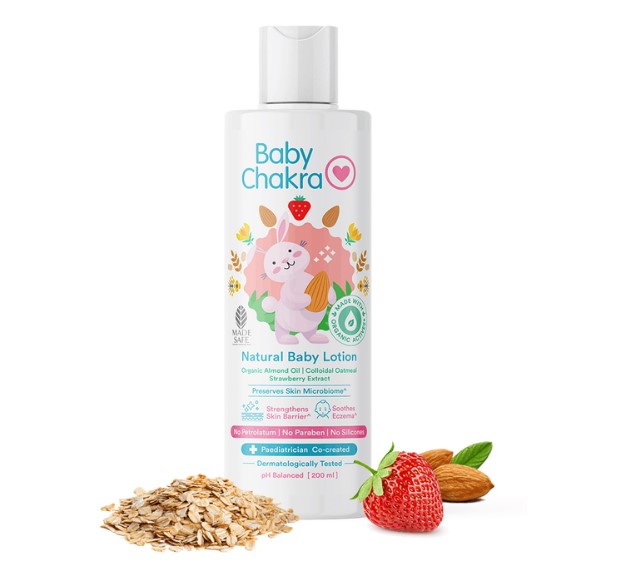
9 Home Remedies To Relieve Bloating During Pregnancy
12 Apr 2023 | 7 min Read
Sudeshna Chakravarti
Author | 799 Articles
Pregnancy causes tons of emotional and bodily changes, and feeling gassy or bloated is a part of the package. While belching and farting unexpectedly during this time feels uncomfortable and embarrassing, if it’s of any assurance, you will be glad to know that you are not the only one experiencing these symptoms. Bloating during pregnancy is pretty common, and nearly all pregnant women experience this.
Read on to know more about the causes of bloating during pregnancy and effective measures to follow to get relief from this uncomfortable symptom.
What Causes Bloating During Early Pregnancy?
The increased production of progesterone hormone contributes to gas and bloating during pregnancy / Image credit: Freepik
During pregnancy, your body produces an increased amount of progesterone hormones, which relax all of your muscles, including those in your digestive tract. This slows down your digestion and further leads to gas build-up in your system. The gas build-up causes bloating, burping, and flatulence.
Bloating may also develop uncomfortable sensations in your gut, especially after a big meal.
Is It Common To Experience Bloating During Late Pregnancy?
Yes, bloating frequently occurs during late pregnancy due to hormonal surges and your expanding uterus. As your pregnancy progresses, the uterine cavity occupies more room in your abdomen, further pushing your stomach and affecting your digestion. This makes you feel bloated and also results in symptoms like acidity, and heartburn.
Common Causes Of Bloating During Pregnancy
In addition to your growing uterus and increased progesterone levels, there are several other factors that may cause gas and bloating during pregnancy. Some of these factors include
- Food sensitivity: Certain foods may contribute to gas and bloating during pregnancy. For instance, if you are lactose intolerant, you may find it difficult to digest dairy products, such as milk, and it could lead to bloating. This occurs because your body is unable to produce enough lactase to break down lactose (a compound present in dairy products).
- Constipation: During pregnancy, the food that you consume remains in your intestine for a long time to help the fetus absorb all the essential nutrients. However, this slows down your intestinal motility, leading to constipation, which further makes you feel gassy and bloated.
- Presence of bacteria in the colon: A variation in the bacterial balance in your colon may also lead to frequent bloating, gas production, and flatulence.
9 Home Remedies To Reduce Bloating During Pregnancy
Eating slowly reduces the load in your digestive system and prevents bloating or flatulence / Image credit: Freepik
Eat Smaller Meals
Your doctor may advise you to attain a specific caloric count during pregnancy, and eating smaller meals can make it difficult for you to achieve that target. However, having smaller portions of food can help reduce the bloated feeling. But to make sure that you attain your caloric requirement, have your meals at frequent intervals.
For instance, you can split your meals into six smaller meals, rather than having three huge meals and overloading your digestive system.
Eat Slowly
Eating slowly is the key to avoiding stomach concerns like gas, acidity, and bloating. It also helps relieve pressure in your gastrointestinal tract and aids in better digestion. Moreover, if you gulp down your food too quickly, there are chances of swallowing air, which further causes gas build-up in your stomach. Hence, take a few deep breaths before and during your meals to relax and eat slowly.
Add Fibre-Rich Foods To Your Pregnancy Diet
Fibre helps absorb water in your digestive system and transports the food smoothly through your intestine. This in turn regulates your bowel movements and relieves the bloated feeling. You can add fibre-rich foods like oatmeal, whole wheat bread, yams, apples, and yogurt to your pregnancy diet to reduce bloating.
Avoid Consuming Refined Sugars
Craving sweets and chocolates during pregnancy is quite common. But you should try and control the urge to consume excess amounts of refined sugars. This is because foods rich in refined sugars, such as sweetened fruit juices and carbonated beverages contain high levels of fructose corn syrup, which contribute to gas and bloating.
Instead of these processed beverages, you can go for fresh fruit juices of bananas, apples, apricots, and peaches. They can easily help satisfy your sweet tooth and also enhance your daily nutritional intake.
Try Probiotics
Probiotics help support the good bacteria in your gut and reduce the risk of bloating / Image credit: Freepik
Probiotic-enriched foods, such as tofu, yogurt, and pickles help support the good bacteria in your gut. This helps regulate your bowel movements and also fights stomach concerns like bloating and constipation. However, make sure to consult your doctor before adding probiotics to your pregnancy duet to rule out the possibility of food sensitivity.
Chew On Some Cardamom Seeds
Chewing a handful of cardamom seeds can help flatulence and bloating naturally. You can also make cardamom tea by boiling two cups of water with 6-7 cardamom pods, and a pinch of nutmeg powder. Have it fresh to alleviate bloating and other stomach issues.
Cut Down On Gas-Inducing And Fried Foods
Foods, such as beans, onions, cabbage, and broccoli are gas-inducing and might make you bloated and uncomfortable. Moreover, fried foods can slow down your digestion, further causing acidity, heartburn, and bloating. Hence, you must cut down on these foods to have a happy and healthy tummy during pregnancy.
Drink Plenty Of Water
Increase your fluid intake throughout the day, and drink at least 8-10 glasses of water. This will help flush out the toxins from your body and prevent flatulence, bloating, and constipation. If you are bored of drinking plain water, you can also opt for other modes of hydration and have coconut water, smoothies, and fresh fruit juices.
Try Yoga And Relaxation Techniques
Practicing yoga can help ease bloating and gas, and also enhance your overall health and well-being. Some simple yoga poses you can try are
- Extended side angle pose
- Triangle pose
- Sitting side stretch
- Cat and cow poses
- Child’s pose
Note: Always consult your doctor to determine which yoga poses are safe for you to perform during pregnancy. Also, practice yoga and other physical activities under the guidance of an expert.
Conclusion
Bloating during pregnancy is a pretty common pregnancy symptom that occurs due to the expanding uterus and hormonal changes. You can get relief from this condition by following the remedial measures we mentioned, such as eating slowly, adding more fibre-rich foods to your diet, and drinking plenty of water.
However, if your bloating is severe and is accompanied by other symptoms like abdominal pain and nausea, make sure to contact your healthcare provider, as it could be an indication of a serious health issue.
Recommended Baby Care Products:
Also Read:
Benefits of high-fiber foods during pregnancy: Learn how the consumption of high-fibre foods can enhance your overall digestive health during pregnancy.
Acupuncture during pregnancy: What are the benefits of getting acupuncture during pregnancy? Tap this post to know.
Best pregnancy books: These books will help you and your partner navigate through the pregnancy journey smoothly. Check them out.
Cover Image Credit: Freepik.com
A


Related Topics for you
Suggestions offered by doctors on BabyChakra are of advisory nature i.e., for educational and informational purposes only. Content posted on, created for, or compiled by BabyChakra is not intended or designed to replace your doctor's independent judgment about any symptom, condition, or the appropriateness or risks of a procedure or treatment for a given person.



